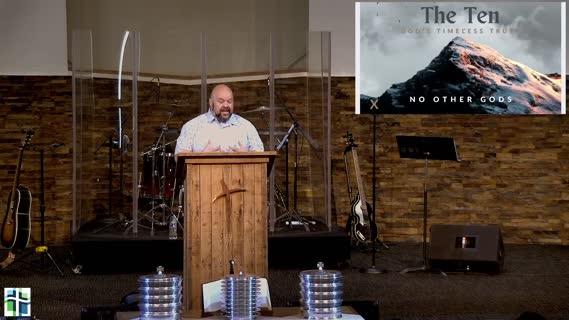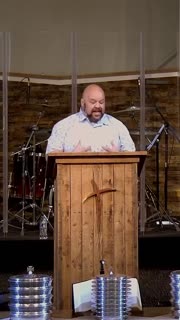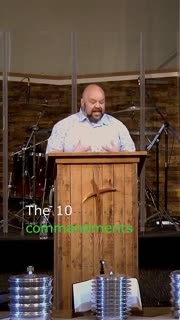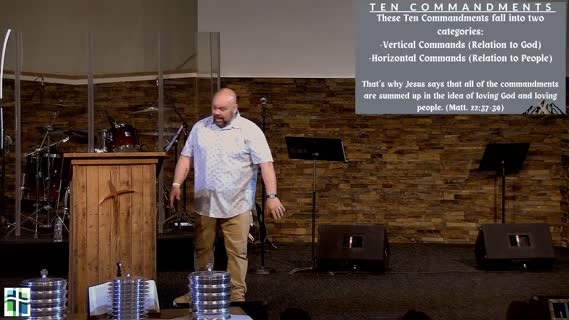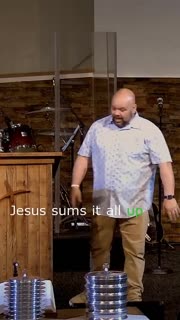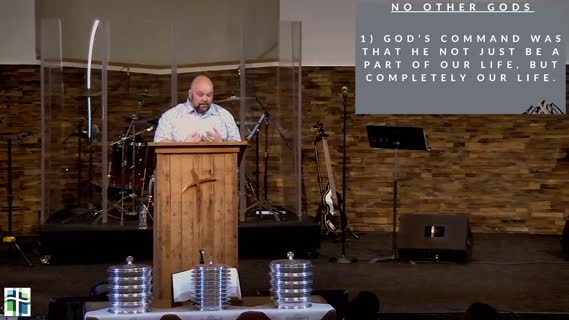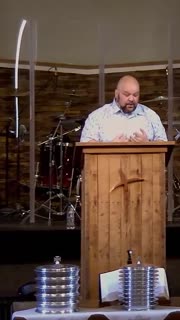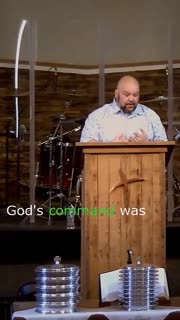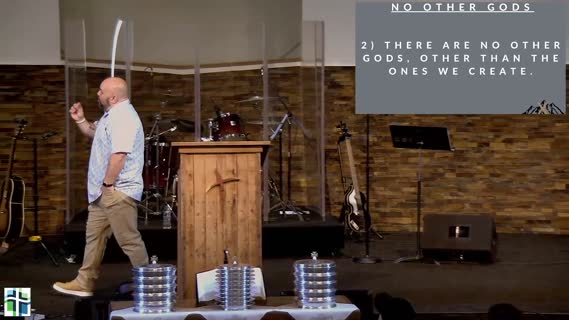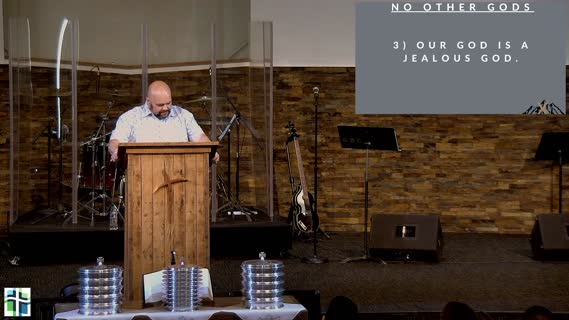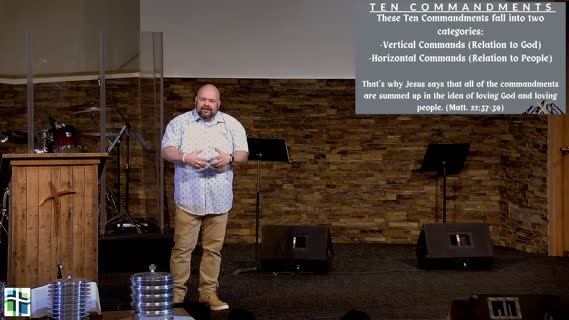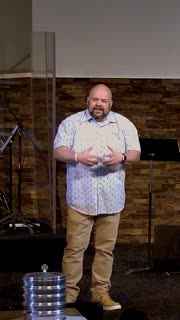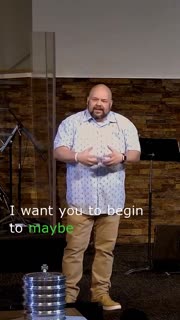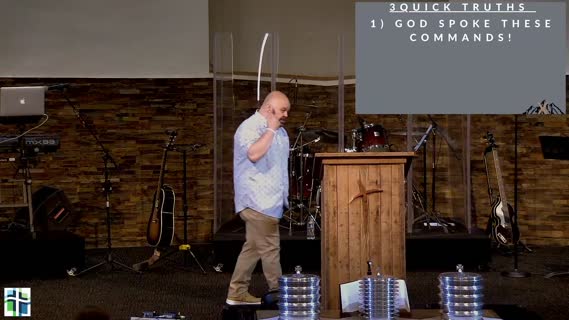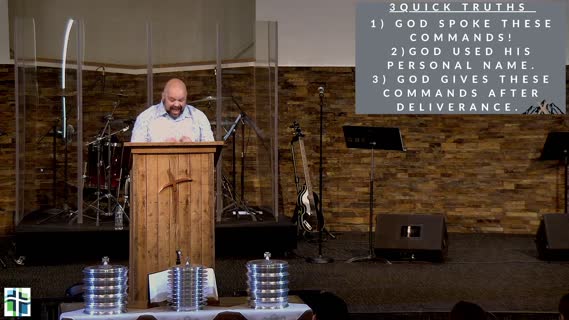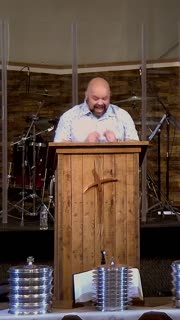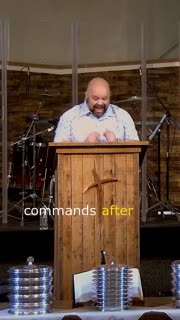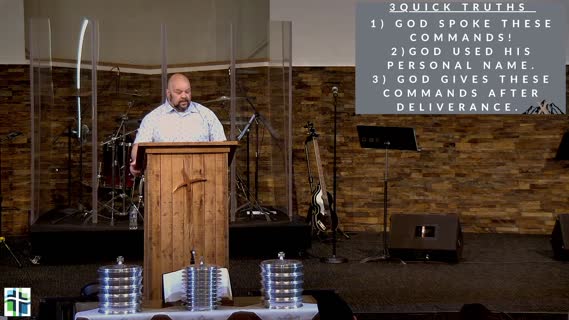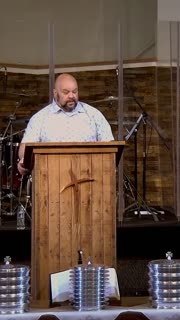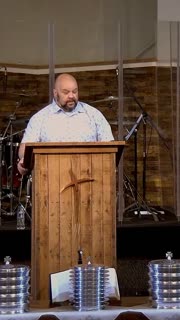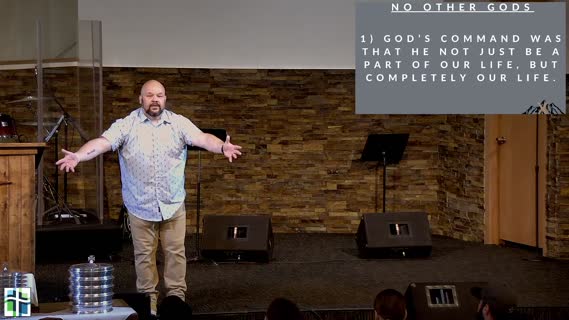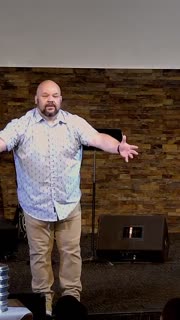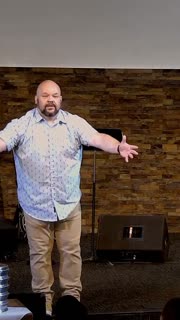Embracing the Ten Commandments: A Path to Fulfillment
Summary
### Summary
Today, we gathered to worship and reflect on the significance of the Ten Commandments, beginning our journey through Exodus 20. We acknowledged the importance of these commandments, not just as ancient rules, but as divine guidelines that shape our relationship with God and with each other. Despite the multitude of laws in our society, God's Ten Commandments stand out as the foundation of moral and legal codes worldwide. These commandments are divided into two categories: vertical commands that govern our relationship with God, and horizontal commands that guide our interactions with others.
We emphasized that the Ten Commandments are not just prohibitions but invitations to a fuller life with God. They are not meant to be burdensome but are given to us after our deliverance, as a way to live in the freedom that God provides. The commandments are a reflection of God's character and His desire for us to live in harmony with Him and with each other.
We also discussed the importance of having no other gods before the one true God. This means that God should not just be a part of our lives but should be our entire life. We often create idols out of various aspects of our lives, but these idols will ultimately fail us. God, being a jealous God, desires our full devotion because He knows that only in Him can we find true fulfillment and peace.
As we move forward in our study, we are reminded that these commandments are not just rules to follow but are a way to experience the abundant life that Jesus promised. They are a call to love God fully and to love our neighbors as ourselves. In doing so, we reflect the character of God and live out our faith in a tangible way.
### Key Takeaways
1. God's Commandments as a Foundation: The Ten Commandments are the backbone of every moral and legal code in the modern world. They are not just ancient rules but divine guidelines that shape our relationship with God and with each other. These commandments are divided into vertical commands that govern our relationship with God and horizontal commands that guide our interactions with others. [45:04]
2. The Commandments as Invitations: The Ten Commandments are not just prohibitions but invitations to a fuller life with God. They are given to us after our deliverance, as a way to live in the freedom that God provides. They are a reflection of God's character and His desire for us to live in harmony with Him and with each other. [50:46]
3. No Other Gods: God's command to have no other gods before Him means that He should not just be a part of our lives but should be our entire life. We often create idols out of various aspects of our lives, but these idols will ultimately fail us. God desires our full devotion because He knows that only in Him can we find true fulfillment and peace. [01:03:45]
4. God's Jealousy: Our God is a jealous God who desires our full devotion. This jealousy is not about God's need but about His love for us and His desire for our best. When we give our hearts to other things, we miss out on the fullness of life that God offers. [01:14:08]
5. One Master: We cannot serve more than one master. Jesus teaches that we will love one and hate the other. True devotion to God means giving Him our whole heart and life. Anything less leads to a divided heart and a life that misses the fullness of God's blessings. [01:18:34]
### YouTube Chapters
[0:00] - Welcome
[05:01] - Invitation to Worship
[06:01] - Prayer for God's Presence
[07:25] - Addressing Hurts and Struggles
[08:34] - Call to Worship and Scripture Reading
[40:34] - Introduction to the Ten Commandments Series
[41:08] - Importance of the Ten Commandments
[41:45] - Statistics on Knowledge of the Ten Commandments
[42:32] - Connection Between Old and New Testament
[43:10] - The Overwhelming Number of Laws
[45:04] - The Ten Commandments as a Moral Foundation
[46:18] - Vertical and Horizontal Commands
[48:06] - Reframing the Ten Commandments
[49:28] - Reading Exodus 20:1-3
[50:46] - Three Truths About the Commandments
[53:44] - God Spoke These Commands
[55:21] - The Authority of God's Commands
[56:38] - God's Personal Name
[59:05] - Commands After Deliverance
[01:03:45] - No Other Gods
[01:09:21] - The Creation of Idols
[01:14:08] - God's Jealousy
[01:18:34] - One Master
[01:22:53] - Call to Surrender
[01:31:16] - Communion Instructions
[01:32:12] - Communion
[01:44:27] - Offering and Announcements
[01:48:34] - New Members Introduction
[01:50:47] - Closing Prayer and Dismissal
Study Guide
### Bible Reading
- Exodus 20:1-3: "And God spoke all these words, saying, 'I am the Lord your God, who brought you out of the land of Egypt, out of the house of slavery. You shall have no other gods before me.'"
- Matthew 22:37-39: "And he said to him, 'You shall love the Lord your God with all your heart and with all your soul and with all your mind. This is the great and first commandment. And a second is like it: You shall love your neighbor as yourself.'"
- Isaiah 44:6-8: "Thus says the Lord, the King of Israel and his Redeemer, the Lord of hosts: 'I am the first and I am the last; besides me there is no god. Who is like me? Let him proclaim it. Let him declare and set it before me, since I appointed an ancient people. Let them declare what is to come, and what will happen. Fear not, nor be afraid; have I not told you from of old and declared it? And you are my witnesses! Is there a God besides me? There is no Rock; I know not any.'"
### Observation Questions
1. What are the two categories of the Ten Commandments mentioned in the sermon? ([45:47])
2. According to the sermon, what is the significance of God using His personal name when giving the commandments? ([56:38])
3. What does the sermon say about the timing of when God gave the Ten Commandments to the Israelites? ([59:05])
4. How does the sermon describe the relationship between following the commandments and experiencing the fullness of life? ([01:00:54])
### Interpretation Questions
1. Why does the sermon emphasize that the Ten Commandments are not just prohibitions but invitations to a fuller life with God? ([50:46])
2. What does it mean for God to be a "jealous God," and how does this reflect His desire for our devotion? ([01:14:08])
3. How does the sermon explain the concept of having "no other gods" and its implications for our daily lives? ([01:03:45])
4. In what ways does the sermon suggest that modern idols can distract us from fully devoting ourselves to God? ([01:09:21])
### Application Questions
1. Reflect on your own life: Are there any "idols" or distractions that you have placed before God? How can you begin to remove these idols to give God your full devotion? ([01:03:45])
2. The sermon mentions that the Ten Commandments are a way to experience the abundant life Jesus promised. How can you reframe your view of these commandments to see them as a path to freedom rather than a set of restrictions? ([50:46])
3. Consider the idea that God should not just be a part of your life but your entire life. What practical steps can you take this week to make God the center of all your activities and decisions? ([01:04:33])
4. The sermon highlights the importance of loving God fully and loving our neighbors as ourselves. Identify one specific way you can show love to a neighbor or someone in your community this week. ([48:06])
5. Reflect on the concept of God being a jealous God who desires your full devotion. How does this understanding impact your relationship with God and your daily choices? ([01:14:08])
6. The sermon discusses the idea of having one master and not serving multiple masters. Are there areas in your life where you feel divided in your devotion? How can you work towards giving your whole heart to God? ([01:18:34])
7. Think about the statement that following the commandments allows us to fully enjoy salvation. How can you cultivate a sense of joy and gratitude in your daily walk with God? ([01:00:54])
Devotional
Day 1: The Ten Commandments as a Moral Foundation
The Ten Commandments are not merely ancient rules but divine guidelines that shape our relationship with God and with each other. They serve as the backbone of every moral and legal code in the modern world. These commandments are divided into two categories: vertical commands that govern our relationship with God and horizontal commands that guide our interactions with others. Understanding this dual nature helps us see the comprehensive scope of God's instructions for a harmonious life.
These commandments are foundational because they reflect God's character and His desire for us to live in harmony with Him and with each other. They are not just prohibitions but invitations to a fuller life with God. By adhering to these commandments, we align ourselves with God's will and experience the freedom and peace that come from living according to His divine guidelines. [45:04]
Deuteronomy 6:6-7 (ESV): "And these words that I command you today shall be on your heart. You shall teach them diligently to your children, and shall talk of them when you sit in your house, and when you walk by the way, and when you lie down, and when you rise."
Reflection: How can you incorporate the Ten Commandments into your daily life to strengthen your relationship with God and others?
Day 2: The Commandments as Invitations
The Ten Commandments are not just prohibitions but invitations to a fuller life with God. They are given to us after our deliverance, as a way to live in the freedom that God provides. These commandments are a reflection of God's character and His desire for us to live in harmony with Him and with each other. They are not meant to be burdensome but are given to guide us into a life of freedom and fulfillment.
By viewing the commandments as invitations, we can see them as opportunities to deepen our relationship with God and to live out our faith in tangible ways. They call us to love God fully and to love our neighbors as ourselves. In doing so, we reflect the character of God and experience the abundant life that Jesus promised. [50:46]
Psalm 119:45 (ESV): "And I shall walk in a wide place, for I have sought your precepts."
Reflection: In what ways can you view God's commandments as invitations to a fuller life rather than as restrictions?
Day 3: No Other Gods
God's command to have no other gods before Him means that He should not just be a part of our lives but should be our entire life. We often create idols out of various aspects of our lives, but these idols will ultimately fail us. God desires our full devotion because He knows that only in Him can we find true fulfillment and peace. This commandment calls us to examine our hearts and to remove anything that takes the place of God in our lives.
When we prioritize God above all else, we align ourselves with His will and experience the peace and fulfillment that come from a devoted relationship with Him. This commandment challenges us to identify and remove the idols in our lives, whether they are material possessions, relationships, or personal ambitions. [01:03:45]
Isaiah 44:6 (ESV): "Thus says the Lord, the King of Israel and his Redeemer, the Lord of hosts: 'I am the first and I am the last; besides me there is no god.'"
Reflection: What are some idols in your life that you need to remove to give God your full devotion?
Day 4: God's Jealousy
Our God is a jealous God who desires our full devotion. This jealousy is not about God's need but about His love for us and His desire for our best. When we give our hearts to other things, we miss out on the fullness of life that God offers. God's jealousy is a reflection of His deep love for us and His desire for us to experience the best that He has to offer.
Understanding God's jealousy helps us see the importance of giving Him our full devotion. It is a call to examine our hearts and to remove anything that competes with our love for God. By doing so, we open ourselves up to the fullness of life that God offers and experience His love in a deeper way. [01:14:08]
Exodus 34:14 (ESV): "For you shall worship no other god, for the Lord, whose name is Jealous, is a jealous God."
Reflection: How does understanding God's jealousy change the way you view your relationship with Him?
Day 5: One Master
We cannot serve more than one master. Jesus teaches that we will love one and hate the other. True devotion to God means giving Him our whole heart and life. Anything less leads to a divided heart and a life that misses the fullness of God's blessings. This commandment calls us to examine our loyalties and to ensure that God is the primary focus of our lives.
By giving God our whole heart and life, we align ourselves with His will and experience the fullness of His blessings. This commandment challenges us to identify and remove anything that competes with our devotion to God. It is a call to wholehearted commitment and to experience the abundant life that comes from serving one master. [01:18:34]
Matthew 6:24 (ESV): "No one can serve two masters, for either he will hate the one and love the other, or he will be devoted to the one and despise the other. You cannot serve God and money."
Reflection: What is one area of your life where you find yourself holding back from surrendering to God? What would surrendering this area to Him actually look like in terms of daily habits?
Quotes
### Quotes for Outreach
1. "The 10 commandments are the backbone of every moral and legal code in the modern world. Every, I mean, even non-theistic countries, even countries that don't believe in a God, use these 10 principles. They use these 10 principles. They come from these 10 commandments. I mean, even the places that say, God's not real. We don't believe in Him. They don't believe in murder. They don't believe you should steal things. They don't believe that you should carve other idols. They don't believe in those kind of things." [45:04]
2. "Jesus sums it all up in Matthew. Matthew 22, 37 through 39. Jesus says that all the law basically comes down to this, to love God and to love people. So we see that the Ten Commandments, we look at them often and look at them as thou shalt not, right? Thou shalt not, thou shalt not, thou shalt not. Well, really the truth of it is is that God is saying, thou shalt. Thou shalt. You should do this. As He says here in just a moment, when He says that we should have no other gods, He's saying, but you should have one God. You should focus on Him." [48:06]
3. "God's command was that he was not just part of your life, but completely our life. I want you to understand that God is not an addition to your life. It's not like, well, okay, I've got this, and I'm just gonna add God to it. God is worthy of so much more than that. He is worthy of so much more than just being an addition to your life. He is designed to be your life." [01:03:45]
4. "There are no other gods other than the ones we create. Now, that'll be part of next week as well. We'll talk a little bit more about that. But I want you to see the truth that's before us. He says, you shall have no other gods. In Isaiah 44, this is what the Lord says. Thus says the Lord, the King of Israel and his Redeemer, the Lord of hosts. I am the first. I am the last. Besides me, there is no God who is like me." [01:09:21]
5. "Our God is a jealous God. He is a God who says, you will worship, you will love, you will care for no one but me, or I will be angry. Now, years ago, years ago, Miss Oprah Winfrey, a name I had not said in a long time, was like, I really struggle with this fact that God's a jealous God because that just doesn't make any sense. Why would he be jealous of me? He's supposed to have everything. The only thing God's jealous for is your heart and your affections because you know what? We give it to everything else, and it's his spirit inside of you." [01:14:08]
### Quotes for Members
1. "I want you to begin to maybe change your mindset on the Ten Commandments. A lot of times the Ten Commandments are looked at as archaic and out of date. But I want you to see them as God's purpose and plan for your life. So I want to invite you to stand. As we read from Exodus chapter 20, we're going to read verses one through three together this morning. Starting in verse one of chapter 20. Word of the Lord reads this way. It says, And God spoke all these words saying, I am the Lord your God who brought you out of the land of Egypt, out of the house of slavery. You shall have no other gods before me." [48:35]
2. "God spoke these commands. We walked through the book of Numbers and we kept hearing over and over and over, and God spoke, and God spoke, and God spoke. Well, here we see that God spoke, spoke these commands right there in verse one. And God spoke. This is such an important phrase for us to grasp. Right now we live in a world where you constantly hear pastors and prophets say things like, God told me this to tell you. If God's word doesn't say it, don't believe it. If God's word doesn't clearly state it, don't believe it. And I love that chapter 20 just starts this way. And God spoke. God spoke. The fact that God gave us these commands gives them their value." [53:44]
3. "God gives this covenant, these commands after deliverance. Look what he says here again, back in verse two. He says, I am the Lord, your God, who brought you out of the land of Egypt, out of the house of slavery. Now these 10 commandments he gives, these are literally, when you understand them, they are for God's people. If you're lost, if you don't know Jesus, these 10 commandments don't mean deadly to you. Because you haven't been raised, rescued from slavery. You haven't been delivered from bondage. See, what we often catch people doing is they go, if I just follow the 10 commandments, I will find salvation." [59:05]
4. "Jesus doesn't say to you, I will love you if you keep my commandments. Did you know that? He doesn't say, you know what, Donnie, if you obey my commandments, I'm gonna love you. He loves you already. And what he says is, if you love me, you'll keep my commandments. I just wanna say this. Sometimes I use that against my children. When they don't listen, I'd be like, if you love me, you'd listen. It doesn't work so well. But Jesus does not say, I will love you if you follow the rules. He says, I will love you. And I need you to follow the rules so you can love me." [01:01:30]
5. "You ever recognize when your life gets off track, it's usually because you wrecked it. And here God is. He's saying, I should be the only God. Verse 3 says, you shall have no other gods be for me. The hardest God to put away is self. Let's move to point 2. There are no other gods other than the ones we create. Now, that'll be part of next week as well. We'll talk a little bit more about that. But I want you to see the truth that's before us. He says, you shall have no other gods. In Isaiah 44, this is what the Lord says. Thus says the Lord, the King of Israel and his Redeemer, the Lord of hosts. I am the first. I am the last. Besides me, there is no God who is like me." [01:08:34]
